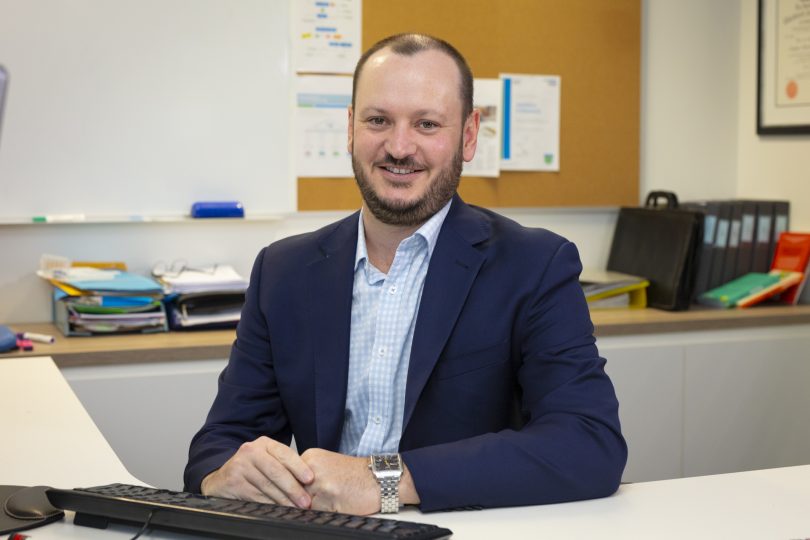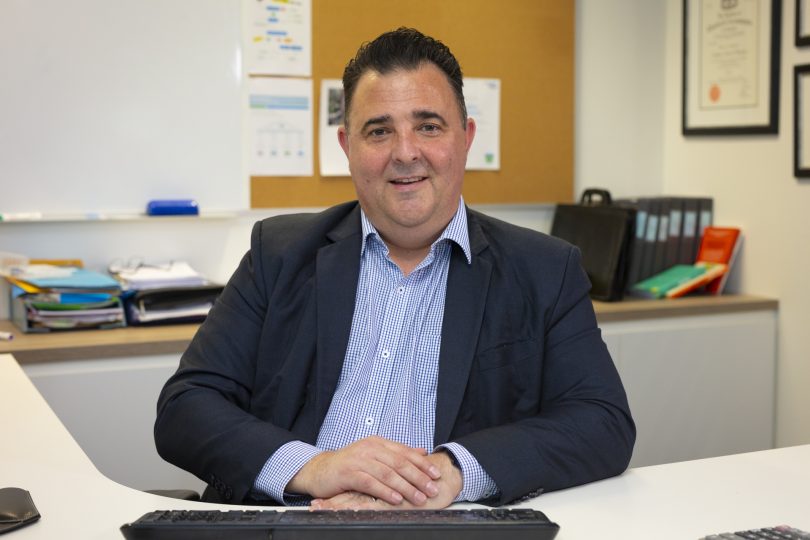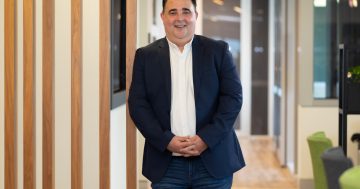
RSM Australia financial adviser Chris Oates advises Self-Managed Super Fund holders that portfolio diversity is key to mitigating risk. Photo: Thomas Lucraft.
It’s no secret world events of the past three years catapulted financial markets into high levels of volatility. Many of us also discovered our superannuation funds didn’t weather the chaos well.
Conditions have painted an alluring picture of the Self-Managed Super Fund (SMSF). But there are plenty of important factors to examine when considering one.
SMSF members must first run every decision past something called the “sole purpose test”, according to RSM principal Andrew Fernance.
“The sole purpose of your superannuation is to support your retirement so you have to ask – ‘is this for my retirement and only my retirement?'” he says.
“Quite a few people get into trouble investing in something benefitting themselves or their business rather than just their super.”
For example, part of your investment strategy might be to buy a ski lodge in Thredbo and benefit from its increased value upon retirement. But Andrew says you can’t “just nip over there in winter for a holiday”.
RSM financial adviser Chris Oates says there is also a perception people with SMSFs can have early access to their super.
“There was some confusion especially during Covid, when the government was allowing people to take money out of their super to ease financial hardship,” he says.
“I had one client who did that but didn’t apply via the government process and they had to pay it back. It’s important people with SMSFs understand that just because they have the chequebook, doesn’t mean you can write the cheque.”
SMSFs require a tonne of paperwork and measures to ensure compliance. And members must crunch the numbers to figure out if an SMSF is for them.
They must also devise and adhere to their own investment strategies. But they may appoint financial advisers to help, which brings Andrew to a crucial piece of advice all SMSF holders should heed: “If you are using experts, make sure you know what’s driving the decision-making – yours and theirs.”
Chris adds: “It’s important to be aware of practices that have conflicts of interest.”

RSM principal Andrew Fernance says SMSF members must know what’s driving all decisions – theirs and their financial advisers. Photo: Michelle Kroll.
Their warning follows the downfall of Canberra financial advisory giant Dixon Advisory and Superannuation Services Pty Limited (DASS), which went into voluntary administration earlier this year after facing massive damages bill from multiple class actions.
It was alleged DASS provided conflicted and misleading advice by directing clients into its US residential property fund. DASS paid millions in penalties and settlements for failure to act in their clients’ best interests – now the litmus test for all financial advice.
“It’s one of the reasons everything gets audited. Anything we (RSM) prepare is audited by an outside firm,” Andrew says.
Chris adds: it’s important to be “crystal clear on who plays what role”.
“I sometimes have clients wanting advice on which properties to invest in,” he says. “They’ll ask sometimes if we can come take a look at properties with them. That’s where you can get into trouble when you’re just starting out – you want to help everyone, but you have to toe the line.”
One standard piece of investment portfolio advice Chris readily recommends is not to put all your eggs into one basket.
“Part of my role is to help clients achieve diversity in their portfolios, which is key from a risk management perspective,” he says.
With all the work and pitfalls, one might wonder why anyone considers an SMSF.
“A lot of people like to have control over their investments,” Andrew says. “If they use advisers to run their business and other affairs, an SMSF might become an extension of that.
“The other reason is to get access to the investments not available through other funds, like gold bullion, properties and other unusual assets they may have knowledge in.”
But ignorance of the law is no excuse.
“Understand your responsibilities, the restrictions around your fund and the rules around what and how you can invest,” Andrew advises.





















